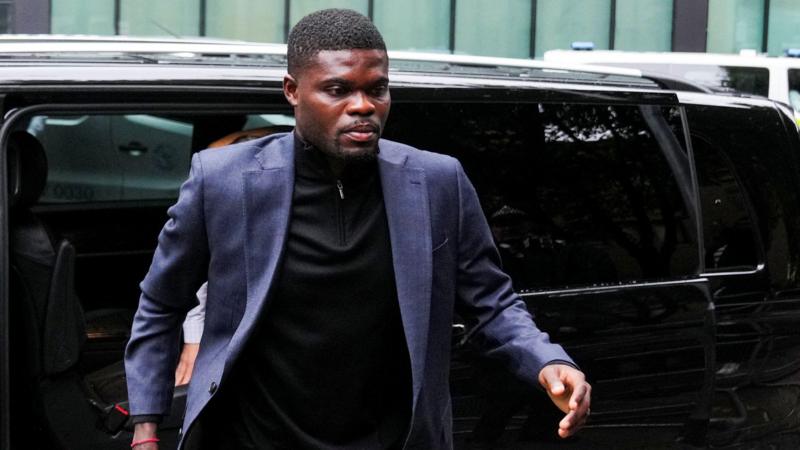Former Arsenal Star Thomas Partey Denies Rape Allegations



In a dramatic turn of events that has captured the attention of both sports fans and the general public, a prominent 32-year-old footballer has found himself at the center of serious legal allegations. This player, whose career has been marked by notable highs on the field, stood trial accused of the rape of two women and the sexual assault of a third.
The case unfolded in a courtroom filled with tension and media glare, reflecting the gravity of the accusations which contrast sharply with the footballer's public persona as a talented and celebrated athlete. The charges date back to incidents over the past few years, illustrating a complex timeline that prosecutors had to piece together, presenting various challenges in the judicial process.
The legal proceedings delved into detailed testimonies from the alleged victims, painting a grim picture of the encounters. These narratives brought forth unsettling questions about the behavior of athletes off the field and the discrepancies between their public accolades and private actions. Each testimony was meticulously examined, with the defense arguing the importance of considering the evidence in its entirety while questioning the credibility of the witnesses and the consistency of their statements.
As is often the case in trials involving high-profile figures, the courtroom saw a mix of reactions from the public. Supporters of the player were seen rallying outside, holding signs and chanting in support, believing fervently in his innocence. In contrast, advocates for sexual assault survivors gathered to emphasize the courage it takes for victims to stand up against influential public figures, highlighting the broader implications of such cases in advocating for justice and change.
This case also reignites discussions about the responsibility that comes with fame, and how personal conduct can dramatically impact a professional career. Organizations associated with the player, including his football club and sponsors, have had to navigate the tricky waters of supporting an accused individual while maintaining their public image and adhering to their ethical codes. Some sponsors have already distanced themselves, waiting for the legal process to conclude before making further decisions.
Moreover, the football community at large is watching closely, using this case as a critical touchpoint in addressing how it handles allegations of sexual misconduct. Past instances across sports disciplines show varied approaches, but there is a growing push for consistent, stringent policies that prioritize respect and equality, supporting victims while ensuring a fair judicial process for the accused.
This trial does more than just determine the fate of the individual; it tests the legal boundaries of consent and the repercussions of misconduct. Legal experts comment on the potential outcomes of the case and its implications for future legal precedents in sports and beyond. Educational programs, stricter policies, and a reformed support system for victims are among the advocated changes propelled by such high-stake trials.
With its mix of legal complexities, societal implications, and the intrinsic involvement of sports culture, the ongoing trial is a landmark case. It underscores a pivotal moment for the sports world in reassessing its values and the standards it sets for its heroes. As the jury deliberates, the verdict will not only decide the trajectory of the footballer’s career but also reflect how society responds to and prevents such grave accusations in the future.
While the judiciary continues to weigh the evidence and the world watches on, what remains clear is the undeniable impact of this case on the individuals involved, the sports community, and the broader dialogues around justice and accountability in high-profile crimes. The resolution of this case is bound to leave a lasting influence, signaling how similar accusations might be addressed moving forward in the high-stakes world of professional sports.